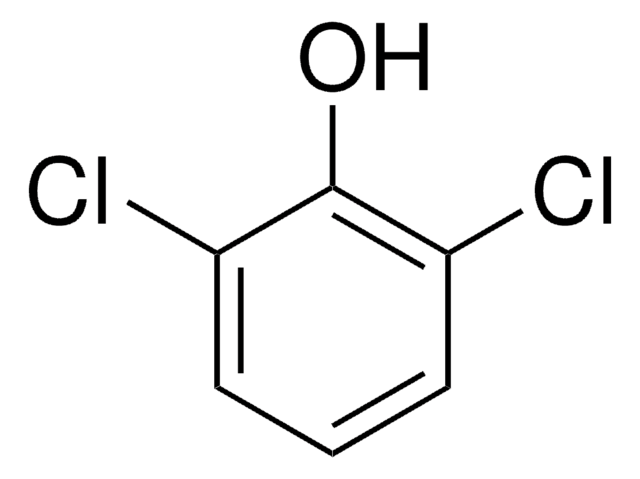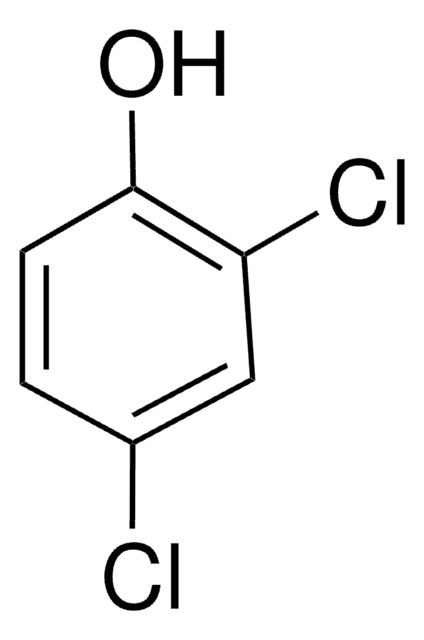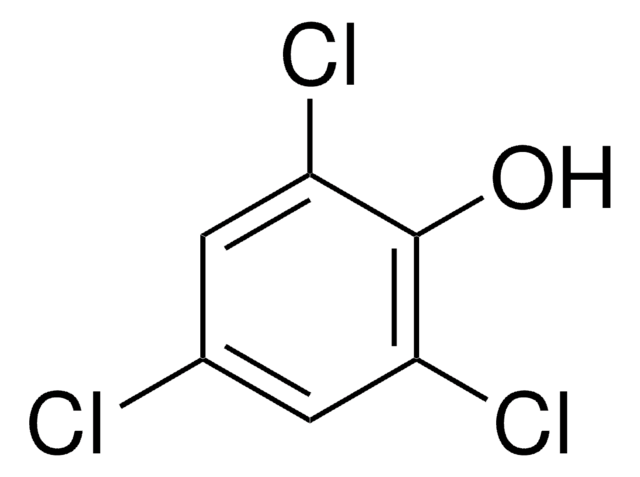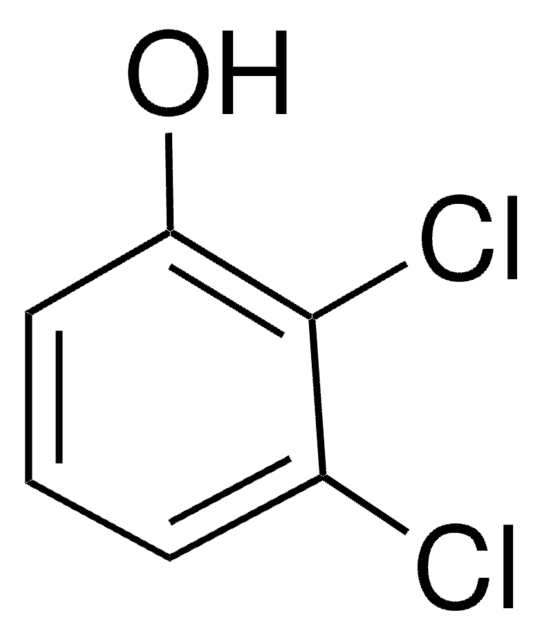All Photos(1)
About This Item
Linear Formula:
Cl2C6H3OH
CAS Number:
Molecular Weight:
163.00
Beilstein/REAXYS Number:
1907693
EC Number:
MDL number:
UNSPSC Code:
12352100
PubChem Substance ID:
NACRES:
NA.22
Recommended Products
Quality Level
assay
99%
form
crystals
bp
~253 °C (lit.)
mp
65-67 °C (lit.)
SMILES string
Oc1ccc(Cl)c(Cl)c1
InChI
1S/C6H4Cl2O/c7-5-2-1-4(9)3-6(5)8/h1-3,9H
InChI key
WDNBURPWRNALGP-UHFFFAOYSA-N
Looking for similar products? Visit Product Comparison Guide
Related Categories
Application
3,4-Dichlorophenol (3,4-DCP) is used in the synthesis of (Z)-5-arylmethylidene rhodanines as anti-methicillin-resistant Staphylococcus aureus (MRSA) agent. It can also be used in the preparation of 2-(3,4-dichlorophenoxy)-N-(2-morpholin-4-ylethyl)acetamide for the treatment of inflammatory pain.
signalword
Danger
hcodes
Hazard Classifications
Acute Tox. 4 Oral - Eye Dam. 1 - Skin Irrit. 2
Storage Class
6.1C - Combustible acute toxic Cat.3 / toxic compounds or compounds which causing chronic effects
wgk_germany
WGK 3
flash_point_f
Not applicable
flash_point_c
Not applicable
ppe
dust mask type N95 (US), Eyeshields, Gloves
Choose from one of the most recent versions:
Already Own This Product?
Find documentation for the products that you have recently purchased in the Document Library.
Customers Also Viewed
The synthesis and SAR study of phenylalanine-derived (Z)-5-arylmethylidene rhodanines as anti-methicillin-resistant Staphylococcus aureus (MRSA) compounds.
Patel BA, et al.
Bioorganic & Medicinal Chemistry Letters, 23(20), 5523-5527 (2013)
Discovery of 2-(3, 4-dichlorophenoxy)-N-(2-morpholin-4-ylethyl) acetamide: A selective ?1 receptor ligand with antinociceptive effect.
Navarrete-Vazquez G, et al.
Biomedicine and Pharmacotherapy, 79(20), 284-293 (2016)
F O Bryant et al.
Applied and environmental microbiology, 57(8), 2293-2301 (1991-08-01)
The reductive dechlorination of pentachlorophenol (PCP) was investigated in anaerobic sediments that contained nonadapted or 2,4- or 3,4-dichlorophenol (DCP)-adapted microbial communities. Adaptation of sediment communities increased the rate of conversion of 2,4- or 3,4-DCP to monochlorophenols (CPs) and eliminated the
J H Carey et al.
Canadian journal of physiology and pharmacology, 62(8), 971-975 (1984-08-01)
The disappearance rates of 2,4- and 3,4-dichlorophenol in a small stream were studied and were shown to be first order with respect to either distance or time of flow. Both chlorophenols disappeared at approximately the same rate with average half-lives
Julien Michel et al.
Journal of the American Chemical Society, 131(18), 6356-6357 (2009-05-07)
There is great interest in molecules capable of inhibiting the interactions between p53 and its negative regulators hDM2 and hDMX, as these molecules have validated potential against cancers in which one or both oncoproteins are overexpressed. We reported previously that
Our team of scientists has experience in all areas of research including Life Science, Material Science, Chemical Synthesis, Chromatography, Analytical and many others.
Contact Technical Service











